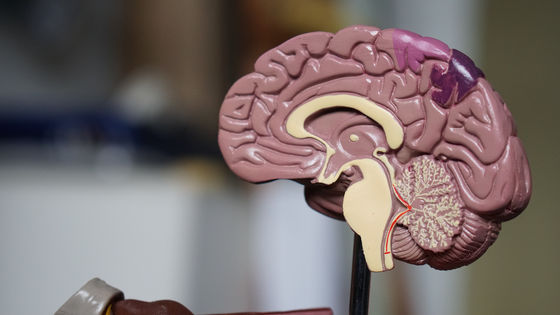Research results that new type coronavirus infection causes serious damage to brain even if mild

The emerging spectrum of COVID-19 neurology: clinical, radiological and laboratory findings
https://academic.oup.com/brain/article/doi/10.1093/brain/awaa240/5868408
Warning of serious brain disorders in people with mild coronavirus symptoms
https://www.theguardian.com/world/2020/jul/08/warning-of-serious-brain-disorders-in-people-with-mild-covid-symptoms
The latest research paper published in the academic journal Oxford Academic summarizes the cases of damage to the cranial nerves due to brain inflammation and delirium due to COVID-19 complications. Reportedly, even if the COVID-19 symptoms are mild, there may be cases where serious neurological problems occur.

According to the paper, when the first wave of COVID-19 arrived in the UK, the number of reports of a life-threatening disease called
Of the patients who developed ADEM as a complication of COVID-19, 12 had central nervous system inflammation and 10 had brain disease with delirium or psychosis. Eight had strokes and eight were diagnosed with Guillain-Barre syndrome , an immune reaction that attacks the nerves and paralyzes due to problems with the peripheral nervous system. Note that Guillain-Barre syndrome is a disease that causes death in 5% of people who develop it.
``COVID-19 has been shown to have brain effects like no other virus has ever seen,'' said Michael Zandy of University College London, a member of the research team. 'Some of these ADEM patients and those with other symptoms show signs of having a severe neurological illness. However, when actually diagnosed, mild lung disease ( It was found to be COVID-19).'

'The report raises concerns about the long-term health effects of patients who have fully cured COVID-19,' said
One of the cases cited in the paper is for a 55-year-old woman infected with COVID-19. The woman had never had a mental illness in the past, but she started behaving strangely the day after she was discharged from the hospital after recovering from COVID-19 symptoms. The woman put on and off her coat, and reportedly had hallucinating monkeys and lions in her house. After that, the woman was readmitted to the hospital and gradually improved her symptoms by taking antipsychotic drugs.
In another case, a 47-year-old woman was hospitalized one week after having a cough and fever, feeling pain, headache, and paralysis in her right hand. The woman later became drowsy, unresponsive, and undergoing emergency surgery to remove a portion of her skull.
“We want clinicians around the world to be alert for COVID-19 complications,” said Zandy. Zandy warns that patients with cognitive symptoms, memory problems, fatigue, paralysis, and weakness should be suspected of having COVID-19 complications.

Not all patients in the hospital are tested with a brain scanner, so the full spectrum of possible brain disorders in COVID-19 patients is not yet known. 'What we really need now is a better study to see what's really happening in the brain,' Zandy said.
While COVID-19 can cause brain damage in some patients, its effects may be more widespread over the next few years. ``I just hope that nothing happens to the brains of people infected with COVID-19, but how many people's brain is affected by the pandemic of COVID-19, so to what extent does it affect the brains of people? We need to be careful about this,' said Zandy.
Related Posts:
in Science, Posted by logu_ii







